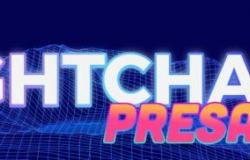Doomscrolling, a term now popular in the digital age, refers to this insidious habit of getting lost in an endless succession of news, often distressing or depressing, on social networks or news sites. At a time when our screens have become an extension of ourselves, this practice affects a large majority of individuals, young and old, and is becoming a social phenomenon as information scrolls by, quickly and seamlessly. released.
An endless dive into the negative
Doomscrolling is not simply a phenomenon of information overconsumption, but a spiral that draws us into an atmosphere of stress and despair. The feeling that nothing is going well, that each bad news and each catastrophe follows one another as the news unfolds. This phenomenon exploded during the pandemic, with a saturation of information channels around COVID-19, but it existed well before, linked to the continuous saturation of the flow of increasingly alarming news.
The term doomscrolling combines “doom” and “scrolling”, a succinct definition of behavior. The problem is that this negative news becomes a vortex where we find ourselves constantly feeding on tragedies, bad economic news, or social crises. In the age of immediacy and buzz, the obsession with unhappiness is as viral as the latest trends on TikTok.
Why does 'doomscrolling' affect our mental health?
Studies show a direct link between excessive consumption of negative content and increased anxiety, stress, and depression. A report published by The Times reveals that those who spend a lot of time scrolling social media are more likely to develop depressive symptoms. The way our brain processes negative information is the cause. We have a biological predisposition to focus our attention on what is threatening or disturbing. Every time bad newsthe body reacts with a surge of cortisol, the stress hormone, even without direct interaction with the situation.
A Flinders University study observed that people engaged in endless scrolling experience increased existential anxiety and distrust of others. Contemporary society, constantly exposed to alarming information, generates a feeling of helplessness and catastrophism which plagues daily life.
The psychological effects of this habit
One of the most pernicious effects of doomscrolling is disconnection from reality and isolation. Instead of having meaningful exchanges with those around us or developing creative projects, we spend hours observing a world that seems to be collapsing before our eyes. This emotional overload causes psychological fatigue which undermines enthusiasm and motivation. Instead of feeling more informed, we find ourselves, at the end of the day, more exhausted and more pessimistic than before.
The testimonies of those who try to break this cycle clearly show the extent of the addiction. Many find themselves prisoners of an unconscious reflex: opening their smartphone, scrolling through the news, absorbing the positive and the negative without distinction. This practice quickly becomes a habit, an automatic response to boredom or stress.
The solution: how to break the vicious circle?
All is not lost. Solutions exist to reduce this overconsumption of bad news and regain mental balance.
1. Use time management apps
Apps like Forest, RescueTime or StayFocusd are valuable tools for limiting the time spent on social networks or news sites. These tools offer a more mindful approach to time management, allowing us to organize our reading times while preventing excessive absorption of negative content.
2. Mindfulness practices and meditation
Another approach to countering the effects of doomscrolling is meditation and mindfulness. These practices encourage a return to the present moment, far from the anxieties distilled by world news. Mindfulness helps reduce stress, calm the mind and regain control of your thoughts. It is a real shield against the incessant flow of information, encouraging reflection before action, reactivity rather than passivity.
3. Set healthy boundaries
Voluntarily limiting access to information by establishing specific time slots is an effective solution. Reading the news should be a structured time, not a compulsive activity. In addition, areas without technology, such as the bedroom, must become refuges, a place where we rest from this digital flood. In the evening, after a day already full of stimuli, it is essential to disconnect to better recharge your batteries.
4. Consume information in a calm manner
Rather than drowning in the doldrums of bad news, why not try to broaden your information consumption to more positive or constructive subjects? There is a wealth of inspiring content, motivational stories or even feel-good platforms that nourish the mind and creativity.
A new digital practice?
Doomscrolling is just a symptom of the digital age we live in. This excessive consumption of information is made possible thanks to the logic of platforms which favor engagement through emotion. They know that negative content gets more attention, which encourages them to promote it. But this is not inevitable. As users, we have the ability to take back control and choose what we consume. By becoming more aware of our digital habits and adopting strategies to reduce our exposure to negative information, we can reverse the trend and improve our psychological well-being.






